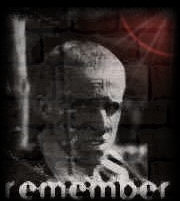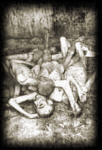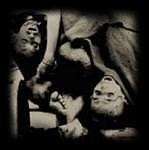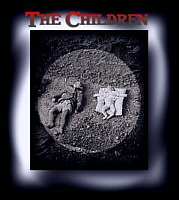



Albert Speer was the architect who served Adolf Hitler with devotion and efficiency, starting with his enthusiastic crafting of Nazi rallies and going on to become the organisational genius whose efforts are credited - if that is the word to use - with keeping the German war machine functioning under the onslaught of the Allied blockade and bombardment.
Albert Speer is said to have prolonged the war for at least a year, with the consequent death of hundreds of thousands and widespread ruin. It also gave the Nazis more time to pursue their mass murder of Jews, Russians, Gypsies and others deemed not fit to live.
Albert Speer studied at the technical schools in Karlsruhe, Munich, and Berlin, and acquired an architectural license in 1927. After hearing Hitler speak at a Berlin rally in late 1930, he enthusiastically joined the Nazi Party January 1931 and so impressed the Führer by his efficiency and talent that, soon after Hitler became chancellor, Speer became his personal architect.
He was rewarded with many important commissions, including the design of the parade grounds, searchlights, and banners of the spectacular Nürnberg party congress of 1934, filmed by Leni Riefenstahl in Triumph of the Will.
A highly efficient organizer, Speer became 1942 minister for armaments, succeeding the engineer Fritz Todt. In 1943 he also took over part of Hermann Goering's responsibilities as planner of the German war economy. From Todt, Speer inherited the Organisation Todt, an organization using forced labor for the construction of strategic roads and defenses. Under Albert Speer's direction, economic production reached its peak in 1944, despite Allied bombardment. In the last months of the war Speer did much to thwart Hitler's scorched-earth policy, which would have devastated Germany.
Speer was jailed in 1946 for 20 years in the post-war Nuremberg trials. After his release he wrote his memoirs, grew wealthy, and until his death in 1981 worked hard at being a penitent, presenting himself as someone who should have known what was being done, but did not know. Albert Speer offered himself as the scapegoat for Germany's collective guilt.
On the stand at Nuremberg Albert Speer stood out among the accused as the one "good Nazi." A dedicated servant of the party who, as Hitler's minister of wartime production, was the Nazis' principle exploiter of forced labor.
|
|
|
Albert Speer : His Battle With Truth by Gitta Sereny
Gitta Sereny's biography meticulously re-creates for the reader the professional, emotional, and psychological life of Albert Speer, Hitler's architect and later his Minister of Armaments. Throughout the 12-year history of the Third Reich, Speer remained one of Hitler's most trusted confidants and one of the most powerful political leaders of the Nazi party.
Researched and written over an eight year period, Albert Speer weaves together information from innumerable personal interviews with Speer, his family, close friends, and professional colleagues, the author's own solid grasp of German history, and critical readings of Speer's own writings, including various drafts of his memoirs, Inside the Third Reich, first published in 1969.
Throughout, Sereny consciously avoids the pitfall of many Speer biographers, who seek to either blame or exculpate Speer for the Nazi's atrocities. Instead, she succeeds in helping the reader understand a "morally extinguished" man and place into context "all the crimes against humanity which Hitler initiated, which continue to threaten us today, and of which Speer, who was in many ways a man of excellence, sadly enough made himself a part." Well over 700 pages, Albert Speer is not a quick read, but superbly written and meticulously researched, it is a pleasure to read, providing unprecedented insight into one of the most complex figures in modern German history. --Bertina Loeffler

The Good Nazi : The Life and Lies of Albert Speer by Dan Van Der Vat, Albert Speer
The New York Times Book Review, David Murray
Dan van der Vat, a Dutch-born British journalist, makes an effective case in The Good Nazi, a well-written and skeptical account, that while the slippery (Albert) Speer knew for years about the atrocities, he was able to pretend that he only "suspected ... that something appalling was happening" to Europe's Jews. As a result, he was one of only two top- ranking Nazis to escape the hangman, drawing a 20-year prison sentence instead.

Auschwitz Bergen-Belsen Belzec Sobibor Treblinka
On the stand at Nuremberg, Albert Speer, the self-described "second man in the Reich," denied any direct knowledge of the Final Solution. But was he really the innocent functionary he claimed to be? And was he sincere in accepting his share of the Nazis' "collective guilt"? This hard-hitting biography says no--that Speer's avowals of ignorance and repentance were a self-serving sham.

Inside the Third Reich by Albert Speer
From 1946 to 1966, while serving the prison sentence handed down from the Nuremburg War Crimes tribunal, Albert Speer penned 1,200 manuscript pages of personal memoirs. Titled Erinnerungen ("Recollections") upon their 1969 publication in German, Speer's critically acclaimed personal history was translated into English and published one year later as Inside the Third Reich. Long after their initial publication, Speer's memoir continues to provide one of the most detailed and fascinating portrayals of life within Hitler's inner circles, the rise and fall of the third German empire, and of Hitler himself.

Speer chronicles his entire life, but the majority of Inside the Third Reich focuses on the years between 1933 and 1945, when Speer figured prominently in Hitler's government and the German war effort as Inspector General of Buildings for the Renovation of the Federal Capital and later as Minister of Arms and Munitions. Speer's recollections of both duties foreground the impossibility of reconciling Hitler's idealistic, imperialistic ambitions with both architectural and military reality. Throughout, Inside the Third Reich remains true to its author's intentions. With compelling insight, Speer reveals many of the "premises which almost inevitably led to the disasters" of the Third Reich as well as "what comes from one man's holding unrestricted power in his hands." -- Bertina Loeffler
Charlane A. Wainwright from Syracuse, New York, USA , December 1, 1997 - Albert Speer's book in historical context
Albert Speer's "Inside the Third Reich" presents a historical view of daily events within the highest ranks of the Nazi power structure. He is able to humanize the Third Reich to a chilling degree, since he demonstrates again and again how little different these men were from many men. The very ordinariness of the high ranking German officials presents the reader with a vivid illustration that this could happen again!
Albert Speer may have a bit of self-interest in his presentation of events through his own eyes, but the most striking sense of the book is that he is, in fact, an extremely likeable man, and a man of thoughtfulness and conscience. His personal struggle to accept the wider meaning of his wartime activities demonstrates the capacity of a decent man to be swept away in indecent activity on the basis of personal pride in a job well done, a personal search for recognition and admiration, and an all too human ability to see through blinders for a very long time.
When we see some of the events currently taking place in the Middle East and elsewhere in the world, especially in places where there is considerable ethnic cohesion and substantial economic distress, we see once again a fertile field for a drift into human atrocity. Given the locally accepted concepts that German people were "special" as well homogeneous, that perpetuation of the ecomonic reorganization of Germany was critical to a return to tolerable life, and that the return to pride in self and nation would allow all Germans to lift their heads once again, Albert Speer took his place among others of talent and energy. They made a goverment and an economy WORK.
The sad fact that the Third Reich was led by a lunatic, who became even more insane and maniacal as time went by, was partially an accident to history.
Many good men, especially bright young men, follow a leader in the wrong direction, and later come to defend their wrong choice of leaders in part from loyalty, and in part to explain themselves to themselves. They cannot see that their emporer has no clothes because they are too close to him, and because they cannot bear to look at the fact that they were duped.
Eventually, realization comes, but often far later than it would have if they had not been totally embroiled already.
After I read Albert Speer's book, I admired him for coming forward to present his personal story of a man who did it all wrong, but who owed himself and humanity an account, and paid it.

The Two Worlds of Albert Speer : Reflections of a Nuremberg Prosecutor by Henry T., Jr. King, Bettina Elles
SPEER REVIEW by T.S. Peric, Cleveland, Ohio , October 19, 1998
“I knew Albert Speer better than any American,” said Henry King during an interview, at 26-years-old, the youngest prosecutor at the Nuremberg trials and the author of “The Two Worlds of Albert Speer: Reflections of a Nuremberg Prosecutor” (University Press of America). It was not a comment filled with braggadocio. In 1946, fallow and a few years out of Yale Law School, King dreamt the dreams of many young men: accomplish a great deed or participate in a grand undertaking.
Hearing about a friend’s appointment to the American “team” at Nuremberg, King immediately applied for a position. Within a few months, he arrived at Nuremberg in the middle of a rainstorm and soon found himself collecting evidence against Erhard Milch, deputy chief of the Luftwaffe (German Air Force), who was charged with participating in Nazi slave labor and human experiment programs. King also interviewed Reichsmarshall and Luftwaffe chief, Hermann Goering and Wilhelm Keitel, the chief of staff of Germany’s military high command.
But frozen in King’s memory were the interviews with Speer in a bleak interrogation room. “Speer was remarkably composed and unshaken; he seemed to possess an inner security and objectivity that many of the others lacked,” King recalls. His composure was all the more remarkable because of the unique and key role he played in the Third Reich. “From 1942 to 1945 not only was he one of the men closest to Hitler, but he was also one who influenced Hitler’s decisions. At one time in late 1943, Speer was reputed to be Hitler’s heir apparent.”
Speer was unemotional, analytical, almost regal in his deportment. And unlike the other 20 defendants, he accepted full responsibility for his actions. “The question that haunted me then and still does today was why Speer, who appeared so decent and honest, was a close collaborator of Hitler,” King writes. “Why had he served such a monster.” Nearly half a century would intervene before King could offer any answers.
Speer spent the next 20 years locked away in Spandau prison (kept incommunicado except to his attorney and family). After his release, he became a best-selling author with “Inside the Third Reich” (1970) a personal look into the sanctum sanctorum of the Nazi leadership and “Spandau: The Secret Diaries” (1976) which described his imprisonment. King continued practicing law, including a stint as general counsel to the U.S. Foreign Economic Aid Program, moving to the private sector and eventually settling in as a professor of international law at Case Western Reserve University in Cleveland.
In 1966, King reestablished contact with Speer, but was unable to pursue his goal of a book until his retirement from TRW where he served as general counsel of Automotive Operations. King interviewed Speer repeatedly (including Speer’s last interview, one month before his death in 1981). He consulted the Nuremberg records, his own notes and the literature on Speer and the Nazis. He also interviewed Speer’s daughter and Traudl Junge, Hitler’s secretary, who observed the interaction between Hitler and Speer.
King’s book carefully plots the conditions and events in Speer’s life that drew the architect toward the summit of Nazi power. Speer was politically naïve, despite his aristocratic background, growing up in a cold, emotionless family, where intellectual prowess was demanded and ambition expected. Introduced to the Nazis at Berlin’s Institute of Technology, Speer fell victim – as did millions of Germans -- to the zeitgeist of Nazi Germany before the war, a time when the promise of a new Reich seemed to represent an unfettered, glorious future.
Speer’s ability to organize was quickly recognized, reaching new heights at the Nuremberg rallies. His Pantheon-like “Cathedral of Lights,” established Speer’s chilling brilliance for displaying raw power. The final, crowning jewel, that firmly enthroned Speer to the Nazis fold was his artistic talent which brought him within handshaking distance of Adolph Hitler. Now, Hitler, the failed Viennese artist, would live vicariously through Speer’s artistic triumphs.
The Nazis’ world was Albert Speer’s first world, according to King. It was among the Nazis that Speer performed with remarkable thoroughness and unquestioned devotion, rising to the position of the Third Reich’s Architect and Minister of Armament Production. Indeed, if Speer’s artistic triumphs contributed to the physical manifestation of how the Nazi’s viewed themselves, his star as Armament Minister shone even brighter. Experts estimate that Speer’s contribution to industrial production lengthened the war by at least two years.
Despite Speer’s success, he began to enter his “second world,” according to King, even before Germany’s surrender. Speer was the only top Nazi to act in defiance of Hitler—and did so openly. He refused to carry out Hitler’s “scorched earth policy” that would destroy the remains of German industry. Speer’s second world is “where his horizon broadened and his values changed,” writes King. “The second and succeeding world of Albert Speer was the horizontal world of the questioning spirit. This was a world of ethical and cultural values, a humanistic world . . . "
In “The Two Worlds of Albert Speer,” King deftly presents how naiveté, seduction and ambition drove Speer to the pinnacle of Nazi power. He concludes that Speer was clearly unique among the top Nazis that survived the war. Speer accepted responsibility for his actions and offered mea culpas for his sins. During and after his imprisonment, Speer pondered his actions and began to search for some degree of redemption until the end of his life.
While supporting the prison sentence Speer received, King ably demonstrates that Speer was not some cardboard character from the Nazi past. Rather, he was a complex and brilliant individual who confronted issues of good and evil on a scale that most of us cannot imagine. King succeeded in his search for a great undertaking with his successful role in the prosecution of Nazi war criminals at Nuremberg.
More than one half century later, he succeeds with another marvelous undertaking: the writing of “The Two Worlds of Albert Speer.”
www.auschwitz.dk www.oskarschindler.com www.emilieschindler.com www.shoah.dk
© 2015-2017
Louis Bülow Privacy
All Rights Reserved.




